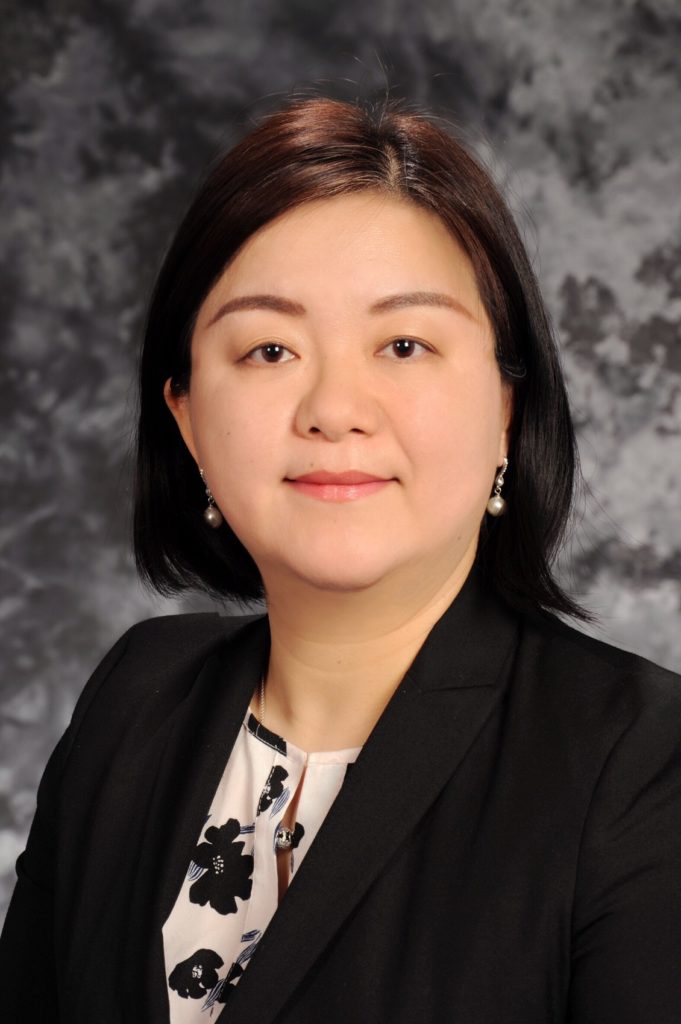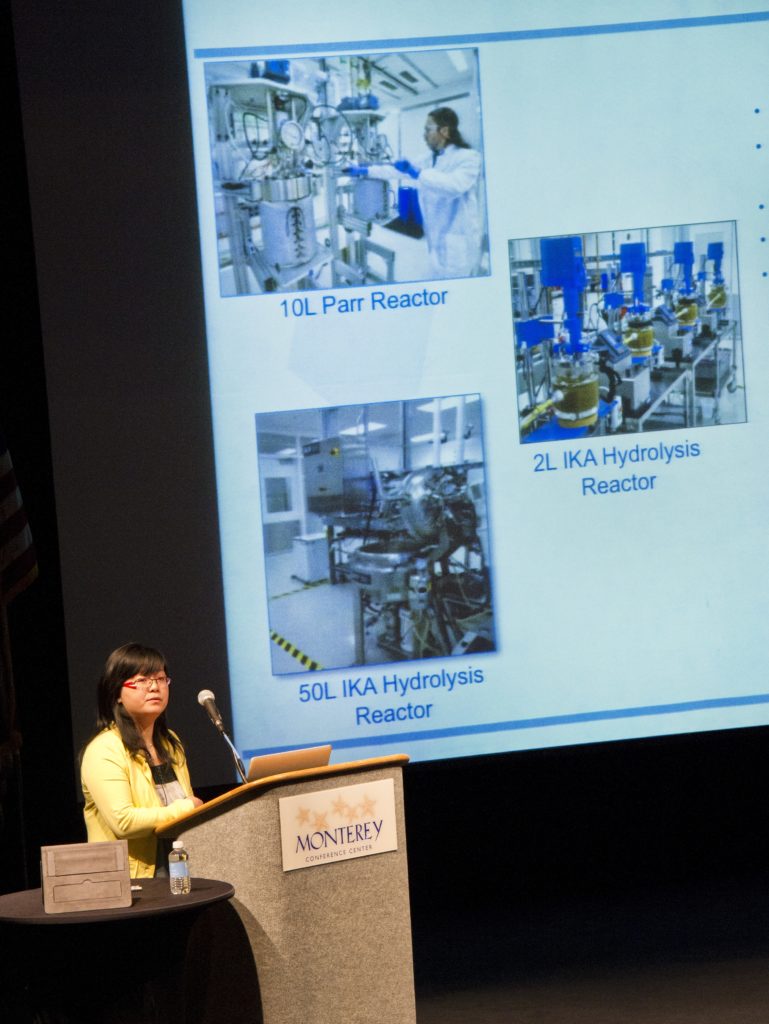This series highlights ABPDU alumni. We interview different alumni to learn more about their career path and what makes them passionate about their work.
Dr. Chenlin Li joined the ABPDU in 2011 as one of the facility’s earliest employees. She is now a technology manager in the U.S. Department of Energy’s Bioenergy Technologies Office.
How did you become interested in science and bioenergy?
I grew up and got my education in China. I had been passionate about renewable energy, waste reduction, and environmental sustainability. These passions drove me to pursue a career in waste-to-bioenergy. After I got my PhD in environmental engineering from the University of Hong Kong, I came to the U.S. and continued working on bioenergy research and lignocellulosic biofuels. I pursued postdoctoral research at Washington State University and Sandia National Laboratories (SNL) at the Joint BioEnergy Institute. I then joined the ABPDU in 2011 as a biological engineer, and worked there until early 2015.
What was your experience like as one of ABPDU’s earliest employees?
Since ABPDU was just inaugurated then, a lot of my work revolved around initiating the necessary research capabilities in biomass deconstruction, fermentation, and downstream separation, and engaging with research institutions and companies for collaborations. A lot of new equipment was coming in, so we worked with equipment vendors and Berkeley Lab’s mechanical and electrical engineers to schedule and plan the work, follow the safe protocols, get the instrument set up, perform installation and test it on biomass materials to ensure timely commissioning and deliverables.
We worked with multiple universities, U.S. Department of Energy (DOE) Bioenergy Research Centers, and private companies on many exciting research ideas, helping them test, validate, and scale up their technologies. We had a small but hardworking and dedicated group then, and it was a really pleasant and rewarding time. We performed, collaborated, delivered, and published scientific results in peer review journals and brought research findings into patents. One of my fondest memories is working in the lab with Deepti Tanjore, squeezing treated cellulosic biomass to separate solvent and chemicals for recovery.
Tell me about what you did after ABPDU.
I left Berkeley Lab in 2015 and started working at Idaho National Laboratory (INL). My work there was on bioenergy feedstock technologies and quality improvement — very complementary to what I had been doing at ABPDU. I worked on many collaborations between INL and Berkeley Lab/ABPDU — joint projects, proposals, and papers. At INL, I had the opportunity to serve in several capacities, including PI scientist, group lead, and bioenergy program lab relationship manager. I gained skills and experience in program development and team management. I also performed a two year outplant assignment to support the Feedstock Technologies program at DOE’s Bioenergy Technologies Office (BETO) in Washington, DC.
Last August, I started my current federal position as a technology manager at BETO. When I look back, I really cherish the experience from working at ABPDU. It was a critical starting point that allowed me to jump out of my comfort zone of doing just research, and instead initiate interactions with collaborators and various stakeholders to build diverse relationships in a very dynamic environment.
What do you enjoy most about what you do?
I enjoy thinking about the barriers and opportunities in bioenergy and environmental sustainability for the bioeconomy’s growth and success. It is critical to recognize the environmental and energy challenges, develop technologies to efficiently utilize diverse waste streams and bioenergy feedstocks, and turn them into bioenergy, biofuels, and bioproducts.
I am really blessed to have worked at Berkeley Lab and ABPDU, as well as other national labs like INL and SNL. These experiences allowed me to meet different people with diverse backgrounds, and not only work on science problems and research opportunities but get exposed to and think about the big picture and the bioeconomy vision. That is very exciting to me. I am thrilled with my current role at the BETO office to support national labs and research institutions on exciting research ideas and technology development for bioenergy and bioproducts.

